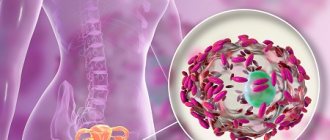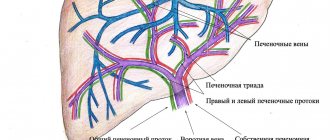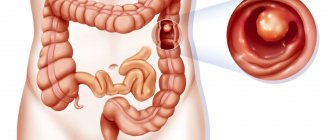Withdrawal syndrome in alcoholism is an acute, severe condition that develops in people with stage II and III alcohol dependence several hours after taking the last dose of alcohol.
Under the influence of somatic and mental attacks, a person cannot resist the craving for alcohol and continues to drink, going on a binge and provoking the progression of addiction. This component of dependence is called physical. It is easily treated with medication and is usually stopped at the very beginning of treatment for alcoholism.
Urgent detoxification
Cleansing dropper
To quickly remove breakdown products and improve well-being.
3500 ₽
Cleansing dropper with pain relief
To remove breakdown products of substances and relieve moderate pain during withdrawal.
5500 ₽
Deep cleansing
Complete relief from withdrawal symptoms and detoxification of the body. It is carried out in a hospital.
18 000 ₽
How long does withdrawal symptoms last?
Duration depends on:
- medical history;
- medical measures taken by the patient.
Without treatment, withdrawal symptoms can last for several weeks . Severe complications may develop, which without treatment can result in death.
If the patient refuses to drink alcohol, the condition lasts up to 1-2 weeks . Then the symptoms gradually subside.
With treatment, persistent improvement occurs within 3-5 days . The main part of the ailment disappears after detoxification and symptomatic therapy.
Don't suffer. Start treatment to relieve withdrawal symptoms
Don't know where to start?
Start by talking to an addiction counselor for free.
7
- or -
According to the international classification ICD-10 and the WHO definition, withdrawal has the following characteristics:
- occurs only after drinking alcohol;
- the interval between drinking alcohol and the development of alcohol withdrawal syndrome is 3-10 hours;
- symptoms reflect functional disorders of any body system;
- the condition lasts up to 7 days, but more often goes away within 48 hours.
Withdrawal occurs when the amount of alcohol in the blood decreases. Some of the ethanol is in the form of breakdown products - toxic acetaldehyde. Therefore, the patient suffers from both intoxication and a hangover.
Two different reasons for feeling unwell after drinking too much alcohol
Poisoning by toxic breakdown products of alcohol
Many people drink alcohol. Quite a lot of them abuse alcohol. At the first stage of alcoholism, when a psychological dependence on alcohol begins to form, excessive consumption of alcoholic beverages in a warm company of friends, at a wedding, at a New Year's corporate party only leads to poisoning with toxic products of the breakdown of alcohol in the body. A person feels bad from intoxication with intermediate products of the oxidation of alcohol compounds within a person. The liver cannot cope with a large influx of alcohol. Only one pass of ethanol processing by enzymes that convert alcohol into acetaldehyde (acetaldehyde, ethanal, methyl formaldehyde), a substance highly toxic to the body, is completed before the next batch of alcohol arrives. As a result of such bacchanalian drinking of alcohol, acetaldehyde toxins begin to accumulate in the body. The body is poisoned. Followed by his reaction to toxic substances inside in the form of vomiting, diarrhea, severe headache and other symptoms. In particularly difficult cases, a home-based treatment for binge drinking and hangover with a narcologist will help you get out of binge drinking and hangover faster.
Hangover syndrome (withdrawal syndrome)
It’s another matter when a person has a physiological dependence on alcohol in the second stage of alcoholism.
In this situation, the body is already accustomed to processing large volumes of incoming alcohol. It is similar to a factory for processing and oxidizing alcoholic compounds.
After there was a lot of drinking, a lot was drunk, and some time passed, the body successfully processed everything and turned the incoming alcohol into acetic acid in two stages. The alcohol processing industry has started, but the supply of alcohol has stopped - the drinking session ended, for example, about six hours ago and a new batch of alcohol is not planned - maybe everything has already been drunk, or maybe the conscience is stuck. And at this moment the body becomes ill - a whole heap of psychological, neurological and autonomic disorders piles up. They are expressed by tremors, severe sweating, sleep disturbance, strong and unstable heartbeat. Against this background, mental disorders reaching delirium tremens are possible. Such symptoms can last for several days.
Types of alcohol withdrawal
The main classification of hangover is based on clinical manifestations.
Neurovegetative
The most common type of withdrawal causes a functional disorder of the autonomic system: dizziness, panic attacks, tremors, sweating, tachycardia. This condition is difficult to feel: the person feels as if he is having a heart attack or a mental attack. Moreover, during examination, markers of the cardiovascular system are often within normal limits.
Visceral
Symptoms in patients from this group are associated with the functioning of the digestive tract. Complaints include diarrhea, abdominal pain, nausea and vomiting. At the same time, they suffer from neurovegetative manifestations, which trigger disturbances in the gastrointestinal tract along with intoxication. A common complication of the visceral type of withdrawal is dehydration and electrolyte imbalance.
Cerebral
It provokes a painful headache reminiscent of a migraine, fainting, and epileptiform attacks.
Psychopathological
Mental disorders are expressed in depression, apathy, as well as disturbances of perception: patients can hear voices, see “little green men”, guess non-existent snakes in the outlines of shadows on the wall, claim that they are being watched, etc. This type of withdrawal syndrome is observed in chronic alcoholism.
According to the severity, withdrawal is differentiated into:
- light;
- average;
- heavy.
It is difficult to draw a line of demarcation between them: in addition to the hangover itself, the alcohol addict suffers from poisoning, complications, and exacerbations of chronic diseases.
List of sources
- Minko A. I., Linsky I. V. Narcology in questions and answers: A reference book for a practicing physician. Kharkov: Torsing, 2003. - pp. 24-40.
- Narcology: national guidelines / ed. ed. N.N. Ivanets, I.P. Anokhina, M.A. Vinnikova, -M.: GEOTAR-Media, 2008 - 720 P.
- Afanasyev V.V. Alcohol withdrawal syndrome. St. Petersburg, Intermedica, 2002, pp. 65-236.
- Pavlova S. V. Metabolic aspects of alcohol withdrawal syndrome // Mental health of the young generation: materials of interregional, scientific and practical work. conf. edited by Semke V. Ya. - Barnaul, 2009. - P. 178-180.
- Altshuler V. B. Clinical manifestations and patterns of the course of alcoholism / V. B. Altshuler // Questions of Narcology. – 2013. – No. 3. – P. 112-142.
Differences between a hangover and withdrawal symptoms
A hangover is a common name for withdrawal symptoms. However, it is important to distinguish these two conditions from each other.
In a person free from alcohol addiction, drinking large amounts of alcohol causes post-intoxication syndrome. Its manifestations are similar to withdrawal, with the exception of cravings for alcohol. At the sight and smell of alcohol, a person will feel disgust and promise himself to “never drink again.”
A hangover is a sign of alcohol addiction. Unlike post-intoxication, it is always accompanied by a strong craving for alcohol.
“Help” is always nearby
Modern narcology provides patients with alcohol addiction with high-quality treatment for conditions such as binge drinking or withdrawal symptoms. There are also excellent methods of treatment and rehabilitation of alcoholism, which allow you to get rid of the problem completely and forget about temporary measures forever.
In this case, the main task of the relatives is to find a proven narcology clinic, where high-quality treatment methods are provided and qualified specialists work. There is now a large selection of drug treatment clinics, which, on the one hand, is good, but also makes it difficult to choose. It can be difficult for a non-specialist to sort through such a sea of offers, to understand where a reliable clinic is and where the services are not of the highest level.
That is why turning to a drug addiction counseling center today is becoming not a luxury, but a necessity. This is a guarantee that you will be offered only reliable clinics and centers with effective treatment methods. Our specialists will help you select a treatment that suits your budget and level of comfort - we always have something to choose from.
In case of acute conditions, long-term heavy drinking or complications of alcohol syndrome, as well as if you need to select a course of treatment or a rehabilitation center, you can always count on a quick and qualified response from our specialists on the toll-free 24-hour hotline. Its number is indicated on the website page. Call and receive only high-quality drug treatment help.
Causes of withdrawal
The etiology of withdrawal syndrome has not yet been fully studied. But the most promising version, which the scientific community is leaning towards, is a disruption of the neurotransmitter system.
Ethanol is a psychoactive substance. It can change a person’s mood, behavior and feelings. When drinking, he feels cheerful and relaxed or peaceful: exactly how intoxication will affect the personality depends on which receptors ethanol binds to.
For example, the effect on dopamine receptors will give a feeling of euphoria, joy, high spirits and a sense of strength. When ethanol is metabolized, the condition gradually returns to normal. But if a person drinks regularly, his body reduces the production of its own dopamine, because its function is already performed by alcohol. Therefore, when sobering up, a person is faced with a lack of dopamine, which provokes:
- depression;
- apathy;
- suicidal thoughts.
To return to a euphoric state, the addict unconsciously reaches for a new dose, thereby causing the progression of the disease.
In addition to dopamine receptors, other receptors are also involved in the formation of a hangover:
- GABA;
- NMDA et al.
Therefore, the motives for drinking alcohol among addicts may differ: one needs another serving of alcohol to improve their well-being, another needs to suppress sad thoughts, and a third needs to calm down. The patient constantly increases the amount of ethanol consumed, the body's tolerance increases, so over time, even severe intoxication does not bring him pleasure.
Diagnosis of symptoms of alcohol withdrawal syndrome
The manifestations of withdrawal are similar to a number of acute mental disorders and traumatic brain injuries, therefore, to differentiate the diagnosis, the doctor specifies the following signs:
- the person has recently consumed alcohol;
- symptoms consistent with alcohol withdrawal;
- other pathologies not related to alcohol consumption were not identified.
Further diagnostic measures are related to:
- clarification of the severity of the condition;
- identifying the main risks;
- compiling an anamnesis.
The list of mandatory studies carried out after examination and questioning of the patient includes:
- general and biochemical blood test;
- urine test;
- electrocardiogram.
Additionally, the doctor prescribes:
- Wasserman reaction test, antibodies to hepatitis B and C, HIV;
- comprehensive ultrasound of the abdominal organs;
- toxicological study;
- fluorography;
- electroencephalogram;
- consultation with other specialists.
When providing assistance at home, the doctor performs a minimum of diagnostic procedures: takes an ECG, measures blood pressure and pulse, and blood sugar levels. But if there are alarming symptoms that indicate a high risk of complications, the patient is hospitalized in the clinic.
There are three degrees of severity, the data of which allows you to draw up a more accurate therapeutic plan:
1. The first degree is usually diagnosed with short-term addiction and short-term binge drinking. Complaints are limited to asthenia, autonomic imbalance and thirst.
2. The second degree of severity develops with heavy drinking for up to 1-1.5 weeks. Due to severe intoxication, a person suffers from fluctuations in blood pressure, tachycardia, and a feeling of foggy consciousness.
3. The third degree usually occurs when binge drinking lasts longer than a week and a half, and is accompanied by somatic and mental disorders and an increased risk of severe complications.
During a long-term drinking binge, a person sequentially goes through all three stages, and the rate of development depends on the state of health, genetics, and the amount and type of drink consumed.
Pathogenesis
With prolonged use of alcohol-containing drinks, a deficiency of neurotransmitters develops in the body. The compensatory mechanism is increased synthesis of catecholamines , as well as inhibition of the activity of enzymes of their metabolism (dopamine-β-hydroxylase/monoxidases), which control the process of conversion of dopamine into norepinephrine . After stopping alcohol intake, the accelerated release of catecholamines from the depot stops, but at the same time, their synthesis remains accelerated. Due to changes in enzyme activity, dopamine , which causes the development of clinical symptoms of alcohol withdrawal syndrome. At the same time, there is a clearly expressed relationship between the level of dopamine in the blood and the severity of clinical manifestations.
Overexcitation of the autonomic nervous system (sympathetic department) and excessive production of adrenal hormones contribute to damage to brain neurons, in particular, cells of the hippocampus, which is related to the emotional sphere/memory processes. Also, a sharp increase in the level of catecholamines has a toxic effect on the heart muscle, which is expressed by arrhythmia , fibrillation , and decreased contractility.
Alcohol, through the inhibitory neurotransmitter GABA (γ-aminobutyric acid), has a depressant effect on the central nervous system. It is the neurotransmitter systems that are normally responsible for excitation processes (glutamate) and inhibition processes (GABA), maintaining them in a state of equilibrium. With long-term/frequent consumption of alcohol-containing drinks, a decrease in the number of GABA receptors is observed through a negative feedback mechanism, which leads to the need to increase the dose of alcohol to achieve a state of intoxication (increased tolerance). Accordingly, acting as a blocker of NMDA (N-methyl-D-aspartate receptors), alcohol reduces the activity of the central nervous system, and chronic consumption of alcoholic beverages promotes an increase in the number of receptors, as well as increased glutamate in order to maintain homeostasis .
Therefore, with a sharp cessation of alcohol intake against the background of its chronic use, there is a relief of its inhibitory effect on the structures of the central nervous system and an increase in the processes of excitation of the central nervous system under the influence of glutamate. The clinical manifestation of the processes of excitation of the central nervous system is alcohol withdrawal syndrome .
Types of Treatment for Alcohol Withdrawal
Self-medication is the most common and ineffective approach. Taking drugs without a doctor's prescription, a person can provoke the development of severe side effects: incompatibility of drugs, allergic reactions and the effect of drugs on internal organs suffering from intoxication. In case of alcohol withdrawal, you need to consult a doctor and undergo a course of treatment.
At home, the doctor provides assistance for mild to moderate severity. When a person does not have chronic diseases and is not in serious condition. At home, you can install an IV and also give the patient a set of medications that will relieve the unpleasant symptoms of a hangover and prepare the patient for the next stage of treatment.
Therapy in a hospital is carried out at the request of the patient, as well as in the presence of objective indications. At the clinic, the patient receives round-the-clock monitoring, rapid adjustment of prescriptions if the condition worsens, as well as hardware detoxification techniques and physical therapy.
Traditional methods cannot stop withdrawal symptoms. Some recipes can reduce intoxication and also dull unpleasant symptoms due to the sedative effect of medicinal plants. However, when using decoctions and infusions, it is important to consider that the result is felt only when the active substance accumulates in the body, while many plants are toxic and can harm the liver and kidneys.
Rapid relief of alcohol withdrawal is achieved through symptomatic and supportive therapy. That is, the manifestations of the condition are muffled with medication before the body truly recovers and the craving for ethanol disappears.
Forecast
In cases of mild manifestations of withdrawal syndrome and lack of treatment, symptoms disappear on average within 8-10 days, and with adequate treatment without hospitalization within a period of up to 5 days. If the patient is motivated to maintain a sober/healthy lifestyle, stay safe and undergo treatment, the prognosis is positive. In severe forms of abstinence, the prognosis is less favorable and is determined by the type of abstinence, the severity of mental disorders, the presence/absence and severity of somatic pathology.
Drugs for the treatment of withdrawal symptoms in alcoholism
In drug treatment practice, an individual set of drugs is used. After detoxification, the doctor prescribes to the patient:
- tranquilizers;
- antidepressants;
- sleeping pills;
- anticonvulsants;
- vegetative stabilizing drug;
- nootropics and cerebroprotectors;
- vitamin complexes;
- antioxidants.
The drugs should be taken in courses under the supervision of doctors. Many psychotropic drugs cause withdrawal symptoms, so it is important to prevent drug cravings from developing.
Complications and possible consequences
Alcohol withdrawal is the main trigger for binge drinking. When a person drinks alcohol in large quantities, he can face any kind of disorder. The list of the most common complications includes:
- liver damage;
- cardiovascular accidents;
- impaired filtration capacity of the kidneys;
- seizures;
- mental attacks.
Another consequence of withdrawal is the progression of addiction. At the terminal stage of alcoholism, it is much more difficult to cope with the disease, and some pathological changes in health and personality are almost irreversible. If you or a loved one is struggling with alcoholism. Don't delay, seek help and start treatment.









